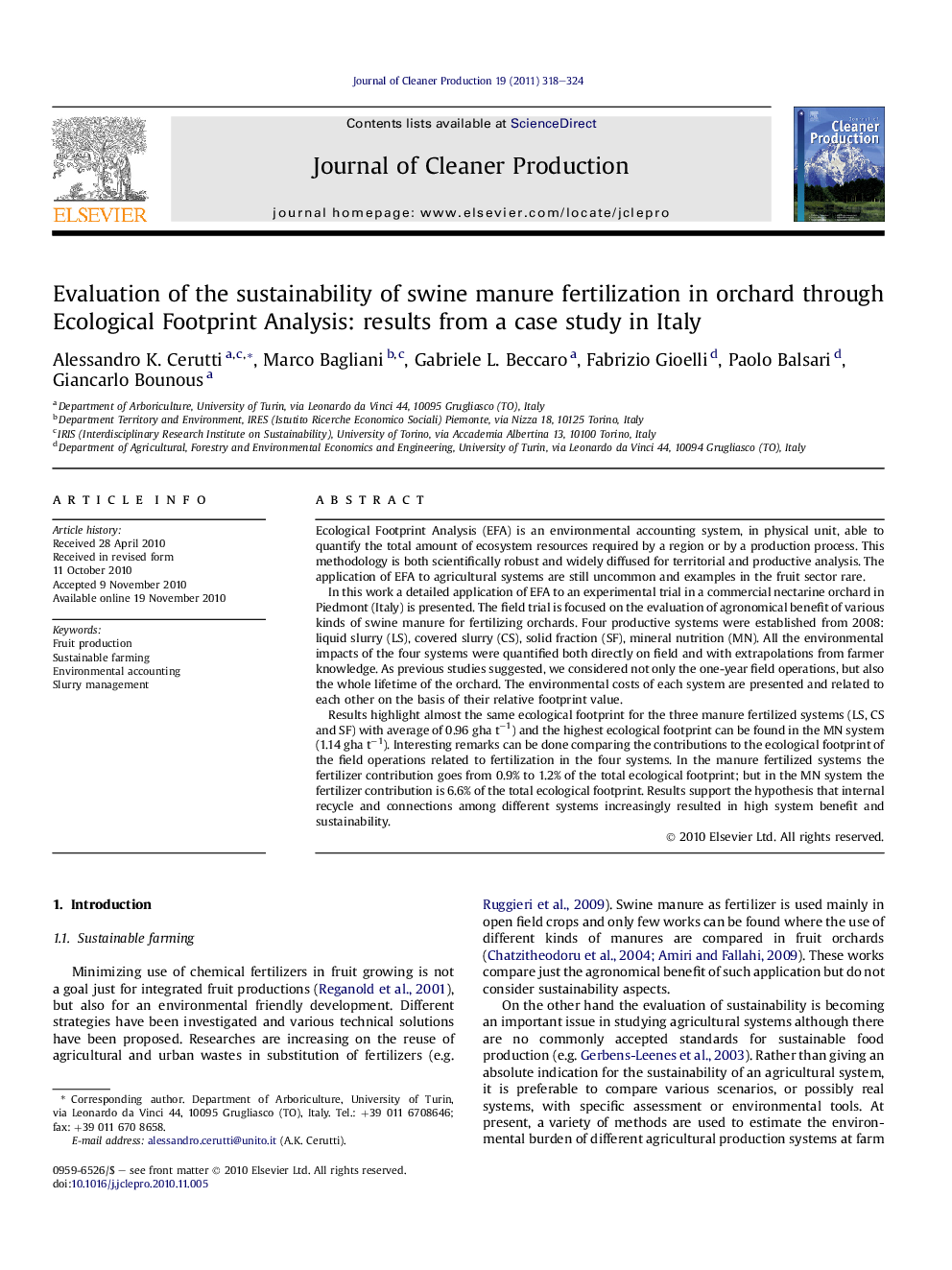| کد مقاله | کد نشریه | سال انتشار | مقاله انگلیسی | نسخه تمام متن |
|---|---|---|---|---|
| 1746099 | 1018079 | 2011 | 7 صفحه PDF | دانلود رایگان |

Ecological Footprint Analysis (EFA) is an environmental accounting system, in physical unit, able to quantify the total amount of ecosystem resources required by a region or by a production process. This methodology is both scientifically robust and widely diffused for territorial and productive analysis. The application of EFA to agricultural systems are still uncommon and examples in the fruit sector rare.In this work a detailed application of EFA to an experimental trial in a commercial nectarine orchard in Piedmont (Italy) is presented. The field trial is focused on the evaluation of agronomical benefit of various kinds of swine manure for fertilizing orchards. Four productive systems were established from 2008: liquid slurry (LS), covered slurry (CS), solid fraction (SF), mineral nutrition (MN). All the environmental impacts of the four systems were quantified both directly on field and with extrapolations from farmer knowledge. As previous studies suggested, we considered not only the one-year field operations, but also the whole lifetime of the orchard. The environmental costs of each system are presented and related to each other on the basis of their relative footprint value.Results highlight almost the same ecological footprint for the three manure fertilized systems (LS, CS and SF) with average of 0.96 gha t−1) and the highest ecological footprint can be found in the MN system (1.14 gha t−1). Interesting remarks can be done comparing the contributions to the ecological footprint of the field operations related to fertilization in the four systems. In the manure fertilized systems the fertilizer contribution goes from 0.9% to 1.2% of the total ecological footprint; but in the MN system the fertilizer contribution is 6.6% of the total ecological footprint. Results support the hypothesis that internal recycle and connections among different systems increasingly resulted in high system benefit and sustainability.
Journal: Journal of Cleaner Production - Volume 19, Issue 4, March 2011, Pages 318–324